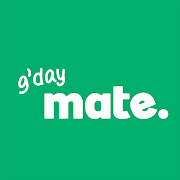⚠️ Telstra's 3G network has now shutdown. Text '3G' to 3498 to check your device. Incompatible handsets will be blocked from accessing the network, more info here
Google’ work smarter not harder’ and you’ll get more than a lifetime’s worth of reading with over 32,100,000 results. When you realise that number doesn’t even include the thousands of ‘productivity hacks’ and ‘smashed it’ videos on YouTube, you’ll begin to understand why that phrase is at risk of becoming a tired cliché, rather than an actual productivity tool.
Whilst the subject has been extensively discussed by most major media outlets at one point or another, it’s often spoken about in aspirational terms and wishy-washy advice about the correct mindset and the necessity for some sort of positivity or organisational journal.
While that might be part of the solution for some people, most of us want real-life examples to study, learn from and incorporate into our practices. MATE, now holding the title of Australia’s largest (and fastest-growing) privately owned telco is one such example.
Let’s dig a little deeper into their success story.
What is ‘working smart’?
Most people would agree that ‘working smart’ relates to being productive and efficient. It means that you save time and resources (and even energy) by getting things done well but quickly, with a minimum amount of lag time. It doesn’t mean working more hours.
The touted benefits of working smart is that, in theory, you have more time to pursue the things that make your life enjoyable, like your own personal projects and interests. And you have more energy to focus on the important people in your life, like your family and friends.
Working smart within a business gives benefits to the company as well. It allows employees to craft their own career trajectory by giving them space to pursue educational training. And it lets a business, as a whole, develop different projects or income streams that will allow them to find greater success into the future.
MATE’s track record
MATE is the case study that’s proven this rule.
MATE, Australia’s largest privately-owned telco, operates with a lean, highly-motivated 55-person staff. This staff is 100% Australia based and work out of their Western Sydney headquarters. They consistently offer incredible customer service, winning industry customer service awards year after year.
By comparison, one of Australia’s biggest telcos with over 450 staff has a customer service output of only around 55% more. That means 395 of this telcos staff are doing the work of approximately 23 (and a half) MATE employees. There’s no doubt that MATE’s employees are working smarter.
Proven efficiency techniques
So, how does MATE’ work smarter’?
Mark Fazio, General Manager of MATE, says, “It starts with our staff’s attitude and motivation. We focus on this work ethic more than anything from the day we hire them. We care about skills, of course. Just not as much.”
“Our people have the experience and the drive that can’t be taught”, Mark says.
MATE hires the right people and then invests in them. They give them the training they need or want to curate their career. And they provide them with the power to do their jobs well. Part of this is as simple as disabling the transfer functions on their phones. When customers call MATE, their call is answered by someone who, in almost all situations, has the power and ability to get them what they need – whether that’s a new internet plan, or help with an outage.
Consider this. 77% of consumers say inefficient customer experiences detract from their quality of life. And the top reason customers switch brands is because they feel unappreciated. Transferring customers, continually putting them on hold and generally being unable to help them with what they need is both inefficient, and might convince them to fire you, and hire your competition.
MATE starts with the right team, but it has a few other tricks up its sleeve. And great use of technology is among them.
“We love tech”, says Mark. “We’re not as big as some of the other telco companies, so we can’t always have the newest, flashiest toys. But we’re always keen to invest in technology that will make the lives of our employees easier and help our business run more smoothly and efficiently.”
Tony Schwartz, President and CEO of The Energy Project, wrote in the Harvard Business Review, ‘The counterintuitive secret to getting things done is to make them more automatic, so they require less energy.’ And that appears to be MATE’s secret.
“We put in the right people. We give them the right tools. And we empower and support their decisions from that point on. That’s working smarter.”

